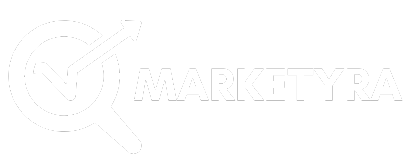On this page you will read detailed information about Search Advertising.
In the dynamic realm of digital marketing, understanding the nuances of search advertising is pivotal for any business aiming to enhance its online presence. As a savvy marketer, you recognize that search advertising is not merely a tool, but a strategic asset that drives targeted traffic and amplifies brand visibility. This article delves into the intricacies of search advertising, offering insights into its mechanisms and benefits. By exploring how search advertising functions, you will be equipped to harness its potential, optimizing your marketing efforts and achieving measurable results in today’s competitive digital landscape.
What is Search Advertising? A Comprehensive Overview
Defining Search Advertising
Search advertising serves as a pivotal component of digital marketing, leveraging search engines to display advertisements alongside search results. When you enter a query into a search engine, the results page typically displays both organic listings and paid ads. These ads are strategically placed to capture the attention of users actively seeking information, products, or services.
The core concept of search advertising involves bidding on keywords that are relevant to your business. When a user types these keywords, your ad has the potential to appear prominently in the search results. This process is primarily facilitated through platforms like Google Ads and Bing Ads, which operate on a pay-per-click (PPC) model. Here, advertisers only incur costs when a user clicks on their ad, making it a cost-effective strategy.
Mechanisms and Benefits
Search advertising operates on an auction-based system, where multiple advertisers bid for the same keywords. However, winning isn’t just about the highest bid; search engines also consider ad quality and relevance through a metric known as the Quality Score. This ensures that users receive ads that are not only relevant but also enhance their search experience.
The benefits of search advertising are substantial. It allows businesses to reach an audience with high intent, enhance brand visibility, and achieve measurable results. By targeting specific keywords, companies can tailor their ads to match user intent, resulting in higher conversion rates. Furthermore, the analytics provided by search ad platforms enable advertisers to fine-tune their strategies for optimal performance.
Integrating Search Advertising into Your Strategy
Understanding what is search advertising and its mechanisms is crucial for businesses aiming to optimize their digital marketing efforts. By effectively incorporating search ad campaigns, businesses can drive significant traffic and achieve a strong return on investment. Whether you’re a seasoned marketer or new to digital advertising, leveraging search ads can enhance your online presence and contribute to your business objectives.
Key Components of a Successful Search Ad Campaign
Crafting Compelling Ad Copy
The ad copy is often the first interaction a potential customer has with your brand through search advertising. Therefore, crafting compelling ad copy is pivotal. The copy should be clear, concise, and directly address the searcher’s intent. Highlight unique selling points and incorporate a strong call-to-action (CTA) to drive engagement. For example, phrases like “Limited Time Offer” or “Shop Now” can effectively prompt users to click on your ad.
Selecting the Right Keywords
Selecting the right keywords is the backbone of any successful search ad campaign. Conduct thorough keyword research to identify terms and phrases your target audience is searching for. It’s crucial to choose a mix of broad, exact, and long-tail keywords to reach a wider audience while also targeting niche segments. Tools like Google Keyword Planner can assist in uncovering valuable keywords that align with your campaign objectives.
Optimizing Landing Pages
Once a potential customer clicks on your search ad, they should be directed to a landing page that is optimized for conversions. Ensuring that the landing page is relevant to the ad content is key to maintaining user interest. Utilize clear headlines, benefit-driven content, and a prominent CTA to guide visitors toward your desired action, whether it’s making a purchase or signing up for a newsletter.
Monitoring and Adjusting Campaigns
A successful search ad campaign requires ongoing monitoring and adjustments. Use analytics tools to track metrics such as click-through rates (CTR), conversion rates, and return on ad spend (ROAS). Based on these insights, make data-driven decisions to refine your ad copy, adjust your bidding strategy, or update your keyword list. Continuous optimization is essential to improve performance and achieve desired outcomes.
By focusing on these key components, you can enhance the effectiveness of your search advertising efforts, ultimately driving better results for your digital marketing strategy.
How Search Advertising Works: Behind the Scenes
The Mechanics of Search Advertising
Search advertising is a robust tool in the digital marketing arsenal, primarily revolving around pay-per-click (PPC) models. At its core, it allows businesses to display ads on search engine results pages (SERPs), targeting users based on specific keywords. When a user enters a search query, the search engine sifts through its ad auction system to determine which ads to display. This auction considers factors such as keyword relevance, bid amount, and the ad’s quality score, which evaluates the ad’s relevance and the expected click-through rate.
Keywords and Targeting
A key element of understanding “What is Search Advertising” is mastering keyword selection and targeting. Keywords are the bridge connecting a user’s search intent with the advertiser’s message. Businesses must conduct in-depth research to identify highly relevant and competitive keywords that resonate with their target audience. By utilizing tools like Google’s Keyword Planner, advertisers can discover keyword trends, search volumes, and competition levels. Moreover, implementing negative keywords helps refine targeting by excluding search terms that might attract unwanted traffic, ensuring that ads appear only for the most pertinent queries.
Crafting the Perfect Ad
Creating a compelling search ad involves more than just choosing the right keywords. Advertisers must craft engaging ad copy that captures attention and encourages clicks. This means writing concise headlines, compelling descriptions, and including a clear call to action. Effective search ads also utilize ad extensions to enhance visibility by providing additional information like links, phone numbers, or location details. These enhancements not only improve the ad’s appeal but also increase the likelihood of engagement, making search advertising a potent tool for driving traffic and conversions in the digital marketing landscape.
Benefits of Incorporating Search Ads into Your Marketing Strategy
Enhanced Visibility and Immediate Results
Implementing search advertising into your digital marketing strategy can significantly bolster your brand’s visibility. By utilizing search ads, you can place your business at the top of search engine results, ensuring that potential customers see your brand first. This heightened visibility is particularly crucial in competitive markets, where standing out is essential. Additionally, search ads offer the benefit of immediacy. Unlike organic strategies, which may take months to yield results, search advertising can generate traffic almost instantaneously, providing a quick return on investment.
Targeted Audience Reach
Search advertising allows for a highly targeted approach to reaching your audience. With sophisticated targeting options, you can tailor your campaigns based on demographics, geographic location, and even user behavior. This precision ensures that your ads are seen by individuals who are most likely to be interested in your products or services, increasing the likelihood of conversion. Moreover, by using keywords strategically, you can attract users actively searching for solutions that your business provides, making search advertising an efficient tool for customer acquisition.
Measurable Performance and Flexibility
Another compelling benefit of search advertising is its measurability. With access to comprehensive analytics, you can track the performance of your search ad campaigns in real-time. This data-driven approach enables you to make informed decisions, optimizing your campaigns for better results. Furthermore, the flexibility of search advertising is unmatched. You can adjust your budget, modify ad content, and refine targeting parameters as needed, allowing you to respond agilely to market changes and consumer behavior. This adaptability ensures that your marketing efforts remain effective and relevant.
Measuring Success: Evaluating the Impact of Your Search Advertising Efforts
Defining Success Metrics
To effectively measure the success of your search advertising efforts, it’s crucial to establish clear success metrics from the outset. These metrics are the benchmarks against which you will gauge the effectiveness and return on investment (ROI) of your campaigns. Common metrics include click-through rate (CTR), conversion rate, and cost per acquisition (CPA). Each metric provides insight into different aspects of your campaign’s performance, such as user engagement, conversion efficiency, and cost-effectiveness.
Analyzing Performance Data
Once your metrics are in place, the next step involves analyzing performance data. This analysis helps you understand how well your search ads are performing in relation to your goals. Utilize tools such as Google Analytics and Google Ads’ built-in reporting features to delve into the data. These tools offer detailed reports on user interactions, ad impressions, and conversion paths. By regularly reviewing this data, you can identify trends, pinpoint areas for improvement, and make informed decisions to optimize your campaigns.
Continuous Improvement Strategies
Search advertising is not a set-it-and-forget-it strategy; it requires continuous refinement. Based on your performance analysis, implement strategies aimed at improving your metrics. This might include tweaking ad copy to enhance relevance, adjusting bidding strategies to optimize cost, or targeting different keywords to reach a broader audience. Remember, the key to successful search advertising is adaptability. By remaining agile and responsive to data insights, you can maximize the impact of your search ads and ensure they contribute positively to your overall digital marketing strategy.
By understanding what search advertising is and how to effectively measure and improve it, you can significantly enhance your marketing endeavors.
Conclusion
In the ever-evolving landscape of digital marketing, understanding the nuances of search advertising is crucial for maintaining a competitive edge. By harnessing the power of targeted keywords and data-driven insights, you can effectively connect with your desired audience at the moment they express intent. This strategic approach not only enhances brand visibility but also drives measurable engagement and conversion rates. As you navigate the complexities of search advertising, staying informed and adaptable will ensure that your marketing efforts remain relevant and impactful. Embrace the potential of search advertising to elevate your digital strategy and achieve your marketing objectives.
Disclaimer
The content published on the Marketyra blog is for educational and informational purposes only. While we strive to share accurate and up-to-date digital marketing tips, strategies, and trends, we do not guarantee any specific results. Readers are advised to use their own judgment before applying any tips or advice provided. Marketyra is not liable for any losses, damages, or issues arising from the use of blog content.
So friends, today we talked about Search Advertising, hope you liked our post.
If you liked the information about Search Advertising, then definitely share this article with your friends.
👉 Need help with SEO or digital marketing services?
Feel free to call us at 📞 +91-9306925861, email us at 📧 admin@marketyra.com to get in touch!






